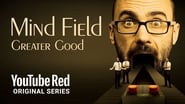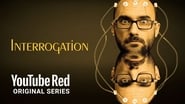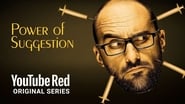-

-
-
Mind Field : Season 2
-
Air date: 06 Dec '17 - 8 episodesExplore the surprising things we know (and don’t know) about why people are the way they are through expert interviews, rare footage from historical experiments, and brand-new, ground-breaking demonstrations of human nature at work.
-
-
List of Episodes (8)
-
Mind Field (2017)

-
1. The Greater Good
06 Dec '17Would you reroute a train to run over one person to prevent it from running over five others? In the classic “Trolley Problem” survey, most people say they would. But I wanted to test what people would actually do in a real-life situation. In the world’s first realistic simulation of this controversial moral dilemma, unsuspecting subjects will be forced to make what they believe is a life-or-death decision.
-
Mind Field (2017)

-
2. The Psychedelic Experience
06 Dec '17Do psychedelic drugs really bring about self-healing and personal enlightenment? New research says they may. In this episode, I travel to the Amazonian jungle of Peru to experience the mind-expanding effects of the psychedelic brew Ayahuasca. I’m joined by Imperial College London’s Head of Psychedelic Research, Dr. Robin Carhart-Harris, who measures the impact of Ayahuasca on my brain.
-
Mind Field (2017)

-
3. Interrogation
06 Dec '17Psychology. Neuroscience. Drugs. All can be tools of interrogation. In this episode, an expert shows me how to coerce unsuspecting subjects into signing false confessions; a police psychologist questions me about my personal life after I am injected with a truth serum; and I match wits against a new brainwave-reading lie-detection method developed at Northwestern University.
-
Mind Field (2017)

-
4. Your Brain on Tech
06 Dec '17Technology isn’t just changing our lives. It’s literally changing our brains -- and maybe for the better. In this episode, I’m a human lab rat in a groundbreaking study at UC Irvine, where scientists test how playing 3D video games affects my spatial memory. Will 10 days of gaming improve my ability to physically navigate a giant, 60-foot maze? And will an fMRI machine detect any physical changes to my brain?
-
Mind Field (2017)

-
5. How to Make a Hero
13 Dec '17What makes a hero? Dr. Philip Zimbardo, the psychologist behind the infamous Stanford Prison Experiment, now runs seminars to teach everyday people how to be heroes. But can heroism be learned? I put his unsuspecting students into a fake crisis situation to see if they would act heroically. Also, I asked employees to help me run a seemingly dangerous experiment, to see if they would blow the whistle to stop me.
-
Mind Field (2017)

-
6. The Power of Suggestion
20 Dec '17Exactly how do placebos work? Researchers believe that, through the power of suggestion, placebos may unleash the power of our own subconscious minds to cure ourselves. I was honored to participate in McGill University’s groundbreaking study of an accessory-assisted placebo. Could a fake, non-functioning “Sham Brain Scanner” enable children with ADHD and other neurological conditions to alleviate their own symptoms?
-
Mind Field (2017)

-
7. Divergent Minds
27 Dec '17Scientists can’t dissect living people’s brains to study their function. But by examining the behavior of people whose brains are atypical (due to stroke, injury, or being born that way), we can learn a lot about all our brains. In this episode, I travel to London to meet a blind, autistic savant with astonishing musical abilities, and I volunteer to have my own brain’s function temporarily disrupted at UCLA’s Neuromodulation Lab.
-
Mind Field (2017)

-
8. TBA
03 Jan '18
-













